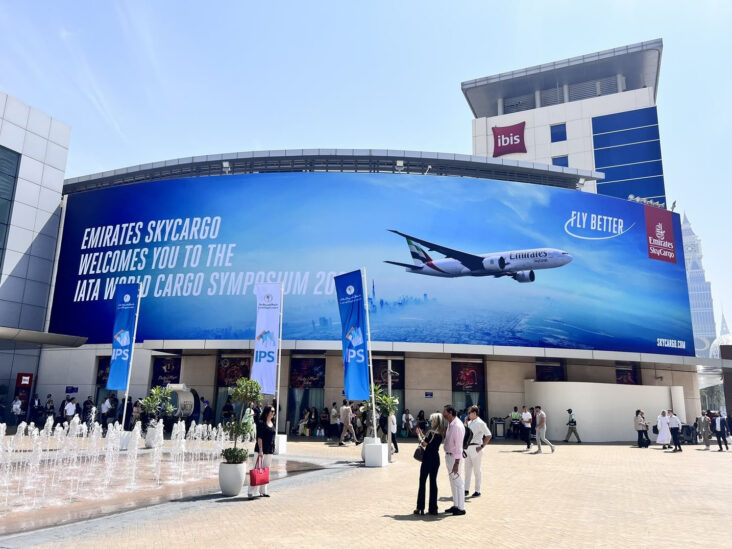IATA World Cargo Symposium 2025 Kicks Off In Dubai

The 18th edition of the World Cargo Symposium 2025 began today in Dubai, in the presence of H.H. Sheikh Ahmed bin Saeed Al Maktoum, Chairman and Chief Executive of Emirates Airline and Group.
The forum, organised by the International Air Transport Association (IATA), is being held in Dubai from 15th to 17th April.
Abdullah bin Touq Al Marri, Minister of Economy, opened the forum with a keynote speech in which he affirmed that the air cargo industry today stands at a crossroads. While it is experiencing rapid growth driven by the boom in e-commerce and increasing demand for fast logistics services, it also faces complex global challenges, including geopolitical fluctuations, stricter regulations, and the urgent need to decarbonise the sector.
He stated that the UAE has led one of the most ambitious climate agendas in the global aviation sector, placing sustainable aviation fuel at the forefront of environmental efforts. He noted the launch of a national roadmap aimed at producing 700 million litres of this fuel annually by 2030.
He also spoke about the importance of digital transformation and its role in reshaping the cargo sector through the expansion of artificial intelligence tools, predictive data analytics, and integrated logistics platforms, which have become essential to achieving efficiency and regulatory compliance across various areas.
Brendan Sullivan, IATA’s Global Head of Cargo, emphasised in his opening remarks at the 18th edition of the World Cargo Symposium in Dubai the pivotal role air cargo plays in maintaining global supply chain stability. He stressed the importance of continuing to focus on meeting core customer requirements – safety and security, digital transformation, and sustainability.
He said the significance of air cargo is clearly evident today, whether in supporting global trade, enabling e-commerce, or delivering vital humanitarian aid. In this context, the air cargo sector must continue to enhance safety and security standards, accelerate digital transformation, and fulfil its sustainability commitments in order to meet customer expectations and keep pace with the ever-changing landscape.
IATA called on governments to intensify efforts to combat rogue shippers and support the work of the International Civil Aviation Organisation (ICAO) in strengthening Annex 18 of the Chicago Convention, which represents the global framework for the safe air transport of dangerous goods.
IATA also renewed its call on governments to adopt a unified, risk-based approach to air cargo security, in light of recent incidents involving the discovery of incendiary devices hidden within shipments. Although some countries have taken new measures, the lack of coordination among them has led to inconsistent outcomes, underscoring the importance of harmonised responses based on international standards.
Sullivan said, “Recent security incidents highlight the need for better coordination among governments. Aviation safety cannot be built on fragmented or reactionary measures. Global standards and cooperation between nations are essential to enhance safety.”
IATA reiterated its call on countries to fulfil their obligations under Annex 17 by sharing accurate and timely intelligence on threats, to enable effective risk assessments and operational decision-making.
According to IATA, progress is being made on carbon emissions reduction, which remains the greatest environmental challenge facing the sector. Sustainable aviation fuel is witnessing increasing demand, with new agreements being signed across the value chain, yet the volumes of sustainable fuel used remain far below the required levels, and production costs remain high.
IATA called on governments worldwide to adopt policy frameworks to enhance sustainable fuel production and reduce its costs.
Amid growing trade disruptions, IATA highlighted the role trade plays in fostering prosperity and emphasised the negative impact of measures that hinder the smooth flow of goods, which harm businesses, consumers, and the economy.


